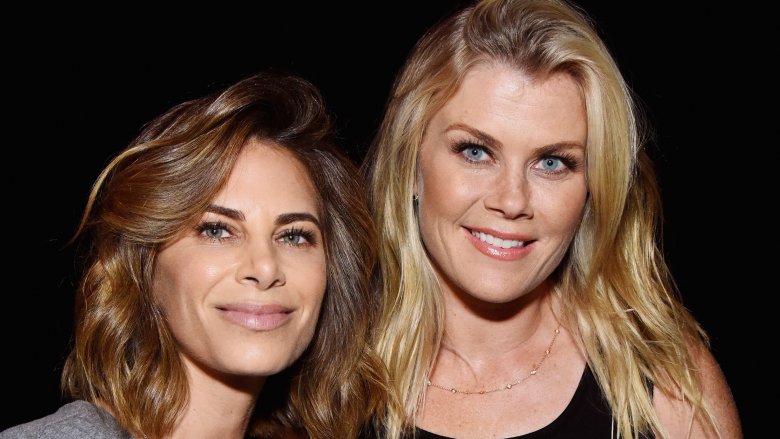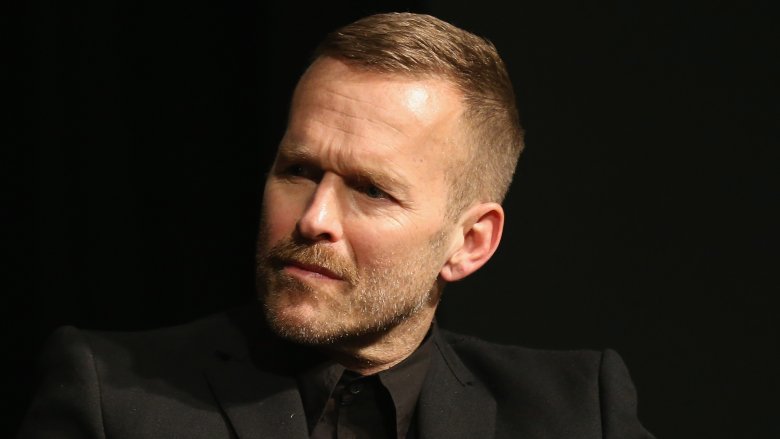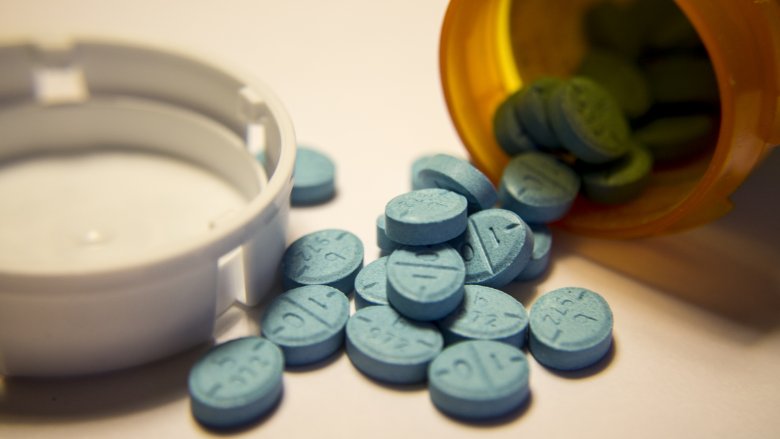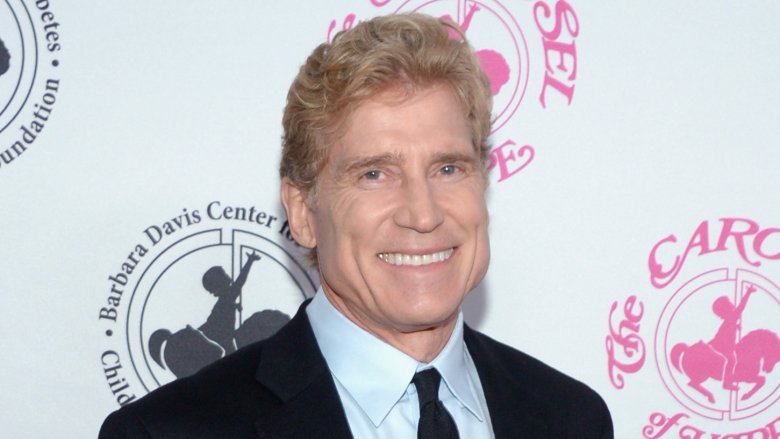Is The Biggest Loser Canceled?
NBC's The Biggest Loser brought the struggle of losing a large amount of weight to reality television in 2004, turning the "battle of the bulge" into a contest and pitting individuals and teams against one another as they used that motivation to lose as much weight as possible over the course of a season. The Biggest Loser and its trainers, such as Jillian Michaels and Bob Harper, inspired countless viewers to exercise more, eat better, and live healthier lives, too, because it was often so relatable and compelling to watch real people achieve their goals. After all, losing a lot of weight is one of the most difficult things a person can do, and it's a serious accomplishment when it's realized.
The Biggest Loser was a fixture of NBC's primetime lineup in various permutations for well over a decade. But then it just disappeared like it was a Biggest Loser contestant's unwanted extra pounds. Let's weigh in on just what happened to the reality TV classic and if it will ever air again.
Most people stopped watching
If it's a big enough hit, a show can sustain a lot of disasters and controversies. Two and a Half Men weathered the storm of star Charlie Sheen's public meltdown and feud with the show's creator, while the Roseanne reboot got canceled after Roseanne Barr fired off a racially insensitive tweet, only to re-emerge as a new show called The Conners. There's really only one absolutely unforgivable sin in TV land: dismal ratings.
In its early seasons, The Biggest Loser was a certified hit, peaking with 10.4 million viewers with its fall 2009 season. Season 12, which debuted in fall 2011, saw ratings for the series slip under eight million viewers. By the 17th season of the show in early 2016 — its last to date, as of late 2018 — less than five million people on average were tuning in, and the show finished the TV season at a lowly No. 101 in the ratings. It would seem that NBC soon dropped some dead weight.
Radio silence from its TV network
The real proof that NBC unceremoniously canceled The Biggest Loser is the complete lack of evidence that they canceled it. A TV show, especially a well-known reality show on a major broadcast network, requires a lot of planning. Months before a season airs, a production company may put out a casting call, often on the website of the network contracted to air that series. Additionally, networks announce their schedules and programs in the works well ahead of time. Curiously, NBC's official casting page continues to not include any contestant solicitations for what was once its flagship reality show.
Perhaps even more tellingly is that the show would have had to have been in production if NBC included it on its slate of upcoming shows for, say, 2018 and 2019. But here's the thing: It's not on the list. That's because nobody has been shooting episodes of The Biggest Loser within the last couple of years.
Bob Harper almost died
A major player of The Biggest Loser endured a horrifying personal medical crisis, but the nature of it is such that it might make a broadcast network want to get as far away from the guy and the show as possible. Friendly, encouraging trainer Bob Harper helped dozens of Biggest Loser contestants reach their personal health goals during his many years with the series. Despite being seemingly indestructible, Harper collapsed while working out in a gym in New York City in February 2017, as reported by TMZ. Fortunately, there was a doctor in the house, who administered CPR and used a defibrillator to keep Harper alive. After waking up two days later, Harper spent more than a week recovering in the hospital. Harper later shared that genetics were at play, seeing as how his mother had died from a heart attack.
Harper recovered, but still — it's probably not great optics (or good publicity) for a network when the guy in charge of helping contestants on its most high profile weight loss show suffers a heart attack.
Science says the show doesn't work
NBC may have canceled The Biggest Loser as quietly as possible because to even acknowledge it at this point may bring unwanted attention to some of the show's more unseemly attributes. In a sick twist of irony, the show that claimed to help people get healthy may have unleashed major damage upon the bodies of its participants.
That's according to a National Institutes of Health study published in the medical journal Obesity in 2016 (via Wiley Online Library). Researchers studied 16 Biggest Loser competitors overall and analyzed their bodies using a variety of methods to measure "resting metabolic rate" and body composition, both at the end of their TBL season and six years later. They found that the average contestant's metabolism had dramatically slowed down and that their bodies were unable to burn enough calories in a day. This means that, although they may have continued to eat healthy and exercise often, they had trouble keeping off the weight, and some had even gained back most of that shed poundage.
It's worth noting that this study, as reported in The New York Times and other high profile media, hit the public just a few months after The Biggest Loser aired its 2016 season ... which turned out to be its last one.
Were contestants given drugs?
The Biggest Loser operated like a televised fitness boot camp, putting contestants through intense exercise and dietary reprogramming. The workout footage and healthy eating tips presented the idea to viewers that the best path to significant weight loss was good, old-fashioned exercise and dieting. According to those familiar with the show, however, that's reportedly not exactly how things went down on the set of The Biggest Loser.
After the release of that damaging NIH study, some people associated with The Biggest Loser told the New York Post that the show secretly encouraged them to use weight loss drugs. Specifically, a "source close to production" claimed that trainer Bob Harper and an assistant gave contestants Adderall and "yellow jackets." The former is a prescription drug approved by the FDA to treat ADHD and narcolepsy, while the latter contains the extract of ephedra, which has been used to promote weight loss ... and was straight-up banned by the FDA back in 2004.
Regarding the accusations, an NBC producer issued a blanket denial of any and all drug pushing. "The safety and well-being of our contestants is, and always has been, paramount," the statement read. "We prohibit the use of any illegal substances, in addition to the many other rules and procedures of the show that are designed to ensure safety."
It's legally complicated
NBC tried to make those shocking allegations go away and so did the show's resident physician, Dr. Robert Huizenga, also known as Dr. H. He released a statement in response to the
New York Post story, saying, "Contestants are told at the start of the show that there is zero tolerance for any weight-loss drugs."
Huizenga later sued both the New York Post and Joelle Gwynn, a former Biggest Loser contestant quoted in the story, for libel, claiming to be defamed by the exposé. Gwynn's attorney asked a court to drop the case on the grounds that she shouldn't be sued simply for talking about her experiences on The Biggest Loser. The New York Post noted that their article didn't demonstrate any malice.
While NBC internally investigated the drug allegations, the network may have also made one other major internal move in regards to The Biggest Loser. According to Huizenga in a court-filed document related to the libel case (via Daily Mail), the drug scandal led NBC to quietly (or silently) cancel The Biggest Loser for good.







